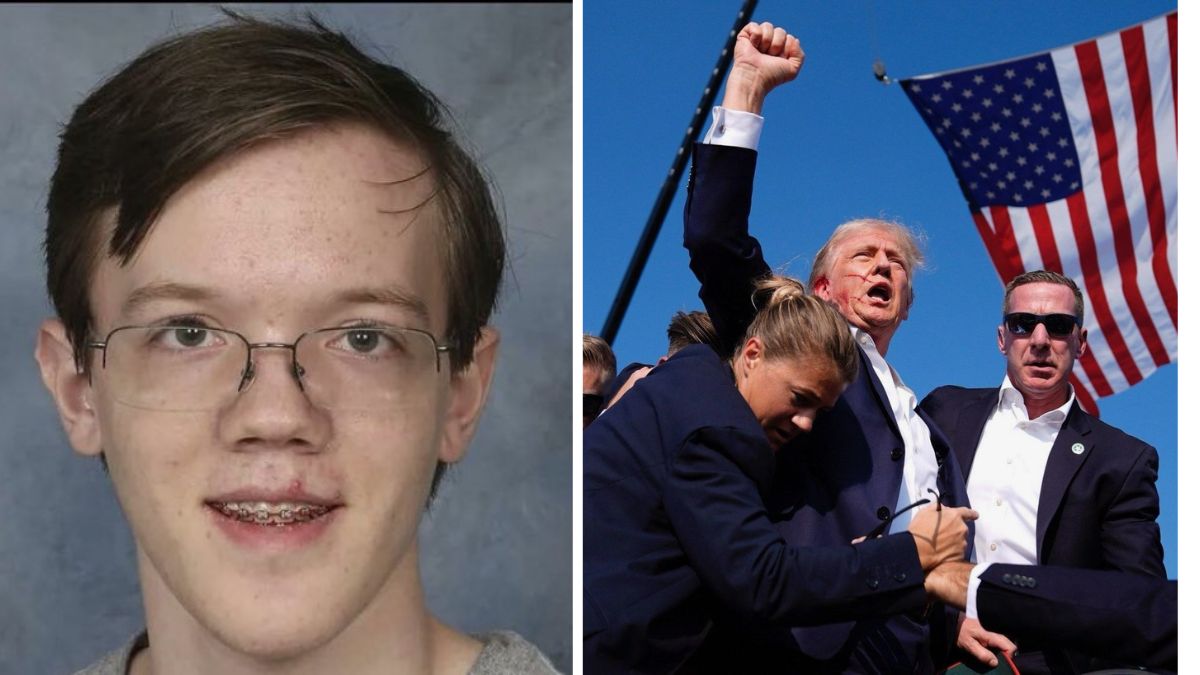Trump shooter Thomas Crooks's motive remains a mystery even a year after the assassination attempt
 Thomas Matthew Crooks who shot Trump. (Right) US President Donald Trump surrounded by Secret Service officials after the shooting | X
Thomas Matthew Crooks who shot Trump. (Right) US President Donald Trump surrounded by Secret Service officials after the shooting | X
A year since US President Donald Trump survived an assassination attempt, the investigators are still clueless about the shooter's motive despite a prolonged and deep investigation. The probe team are still in the dark about how the suspect Thomas Matthew Crooks managed to get so close to Trump.
The focus shifts to Crooks as six agents were suspended by the US Secret Service for failures connected to the shooting that happened in Pennsylvania's Butler. Corey Comperatore, a firefighter attending Trump's campaign rally that day, died in the attack.
Though the FBI conducted nearly 1,000 interviews and analysed hundreds of hours of video footage, among other things as part of its investigation, it has not been able to unearth the motive. The agency, however, managed to go deep into the mindset of Crooks. The FBI later suggested that it believes Crooks was "strikingly intelligent" but likely had an undiagnosed disorder.
According to former FBI agent John Nantz, Crooks did not fit the profile of a politically motivated extremist. Nantz, a subject expert, told Fox News that Crooks didn't look like an ideologue or an individual who was being directed in some way to conduct an assassination attempt.
"But more like a person with anti-social issues that may have been seeking notoriety," he added.
The FBI analysis found that in the weeks leading up to the event, Crooks searched online for both Democratic and Republican politicians, along with the upcoming Democratic National Convention and "depressive disorder."
Nantz too, believes that the motive can only be obtained via digital footprints and personal interviews in the absence of a confession or manifesto. "Whoever the suspect might be, some of your best information comes from people who knew them and what they’ve left behind. Now that everybody’s kind of self-reporting 24 hours a day, seven days a week, I think it's much easier to figure out: is this individual suffering from mental illness or ideologically motivated?," he added.
Nantz believes the Crooks’ upbringing and lack of friends were red flags. "One thing I thought was interesting — they said he didn’t have friends," Nantz said, questioning why Crooks's parents didn't think that was a red flag from the very beginning. "Any parent can tell you that if your child does not have friends, that’s going to be a big concern. And the fact that his parents were both certified counsellors raises questions about the level of their engagement," he added.
A former US Secret Service agent and special agent with the Department of Homeland Security Charles Marino also believes the same, but thinks he would have been deemed a real threat, had he been identified before the incident. "He had access to weapons, money and the means to travel," Marino said.
World